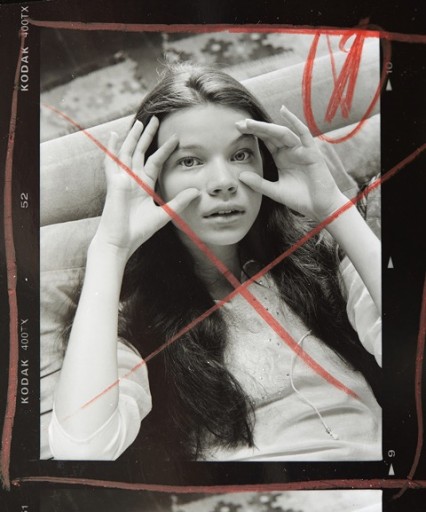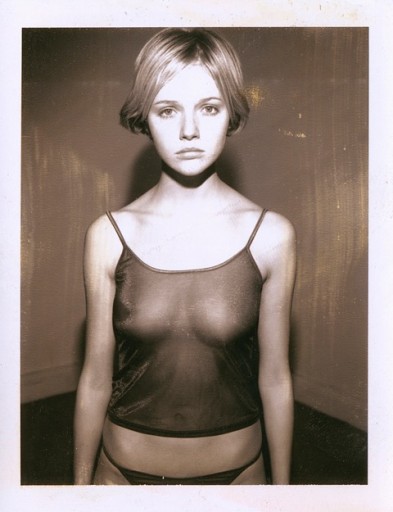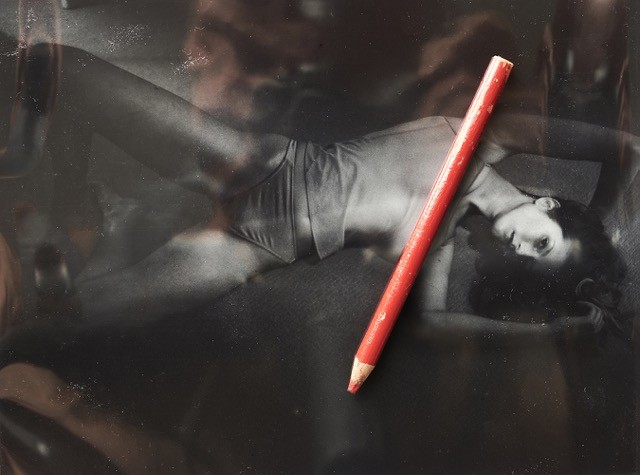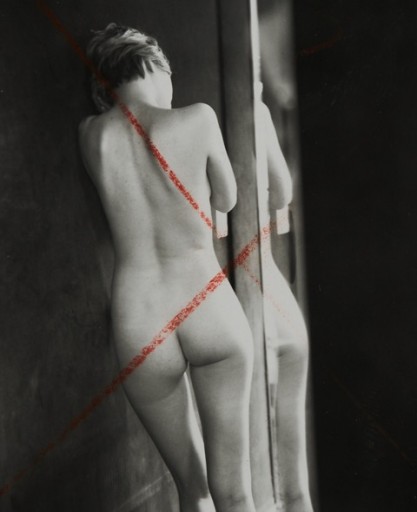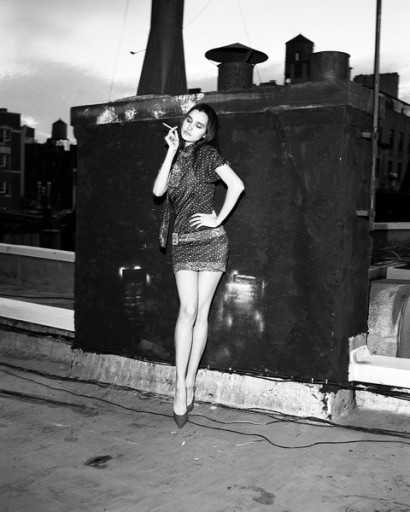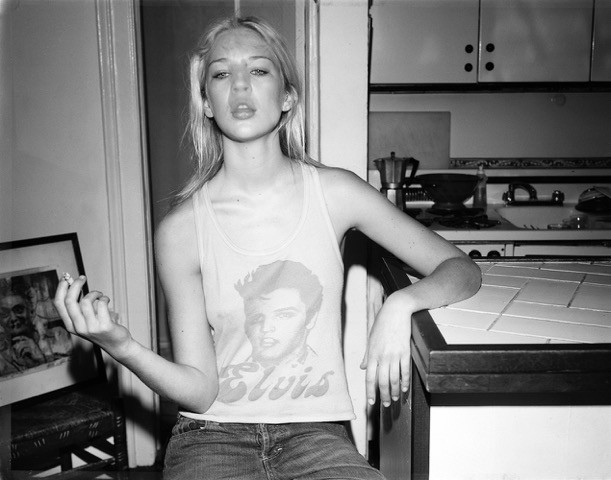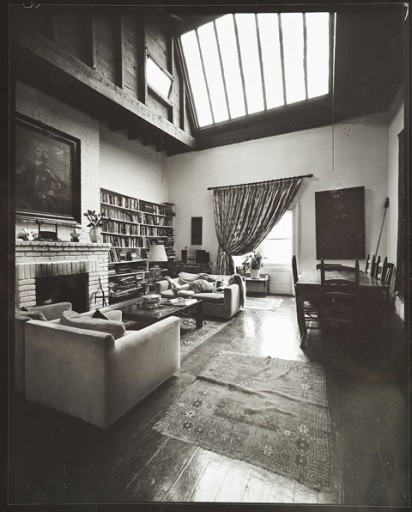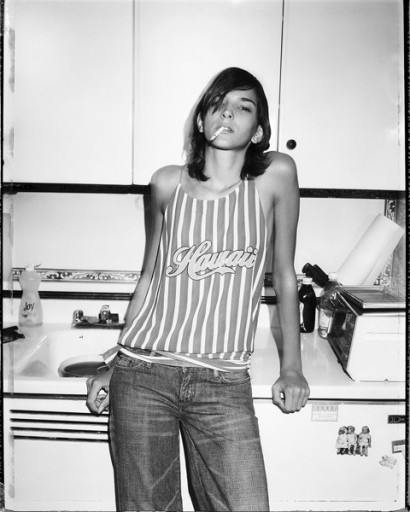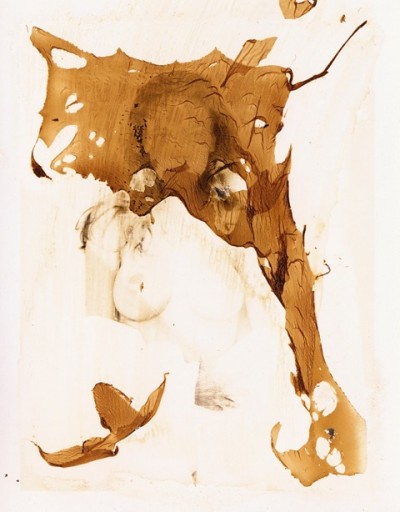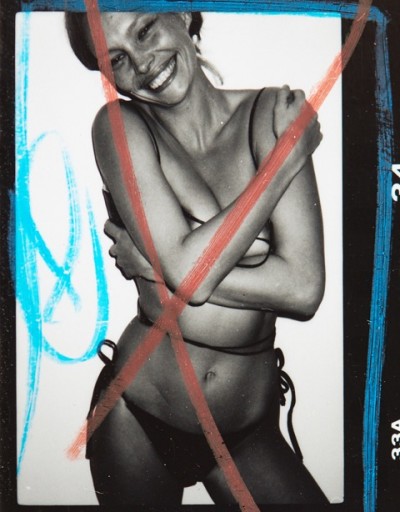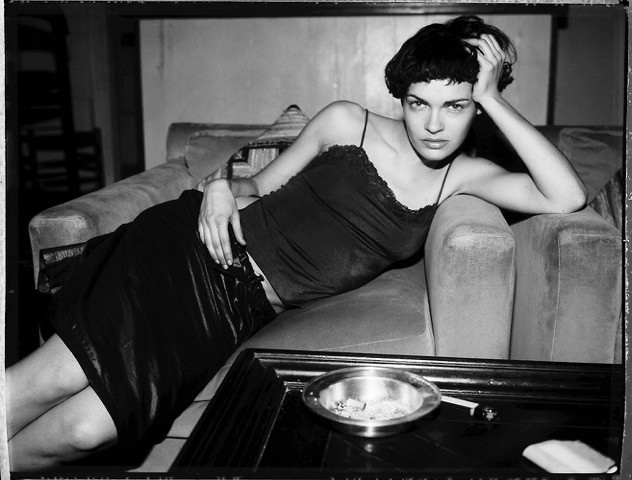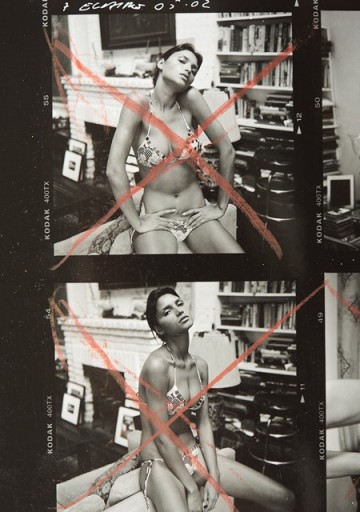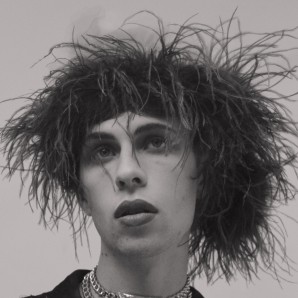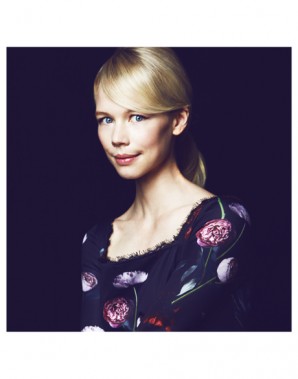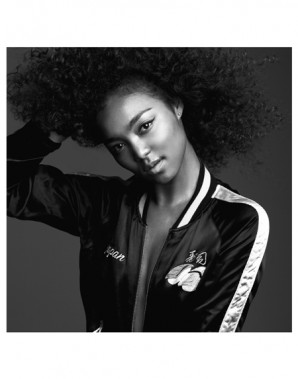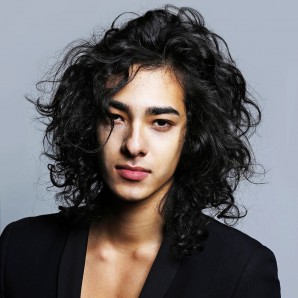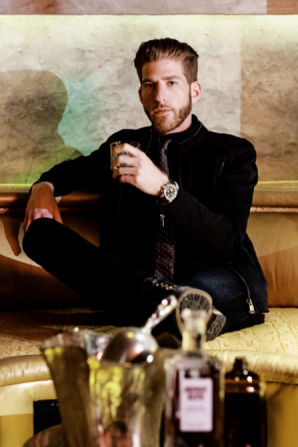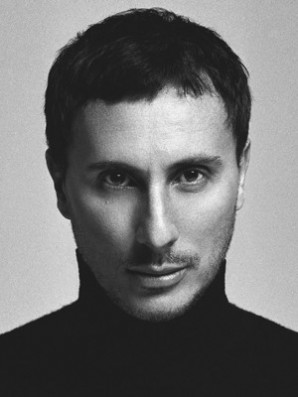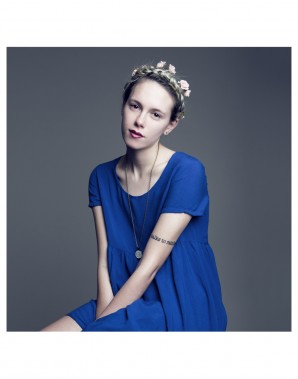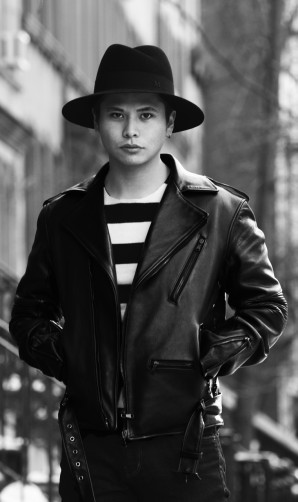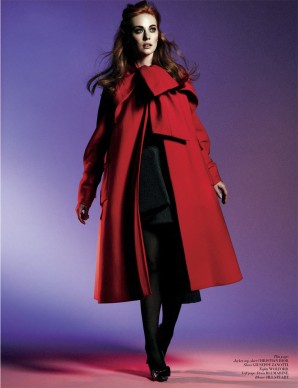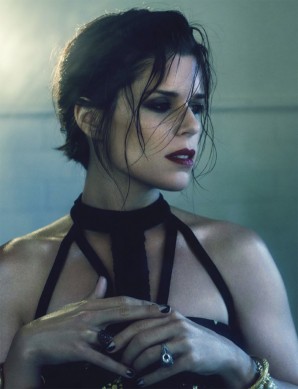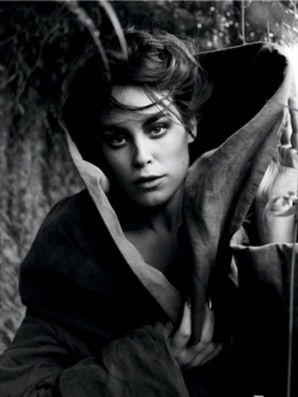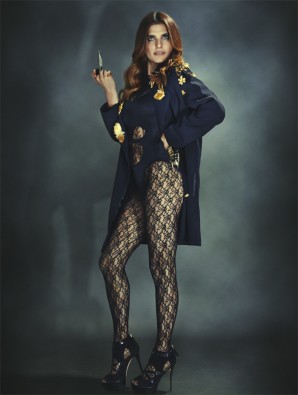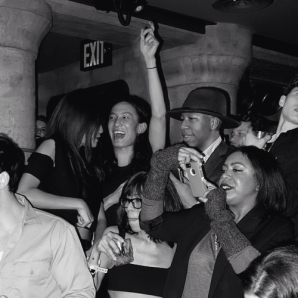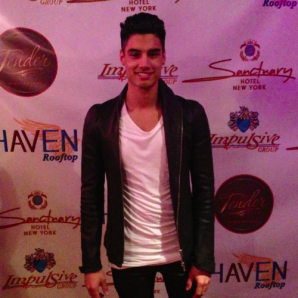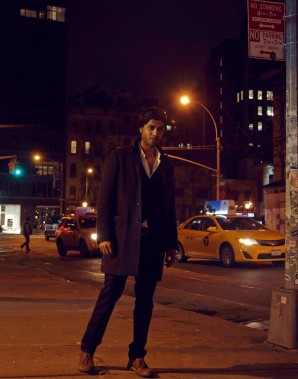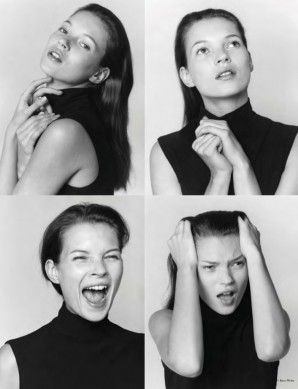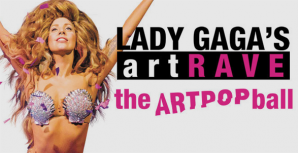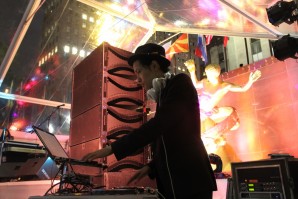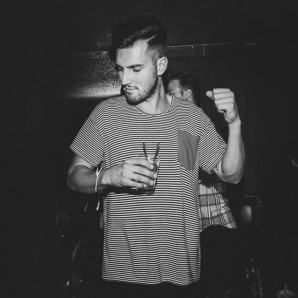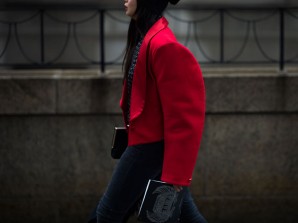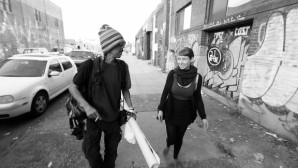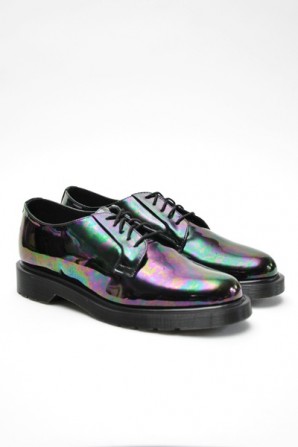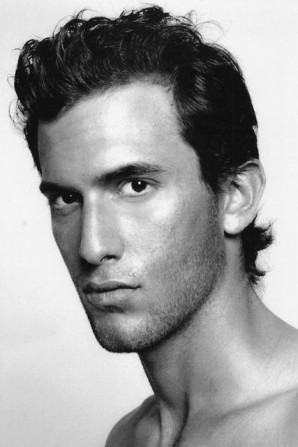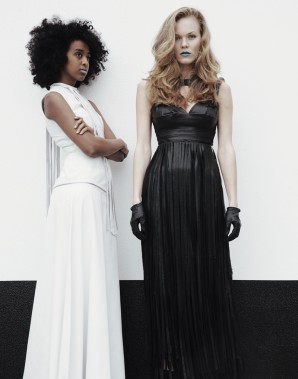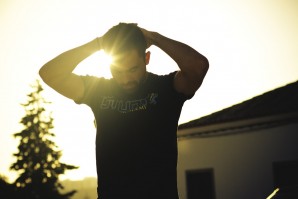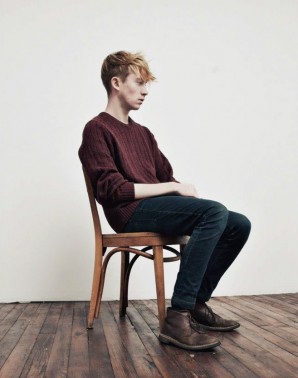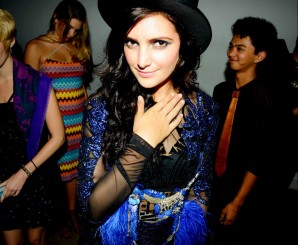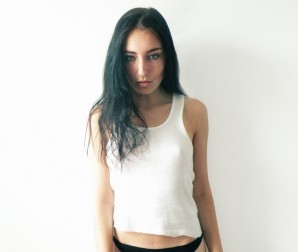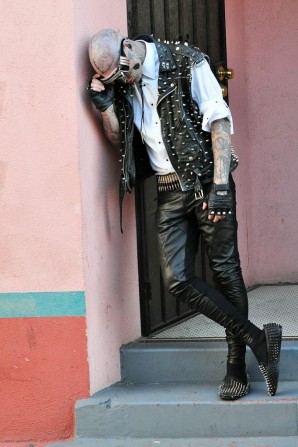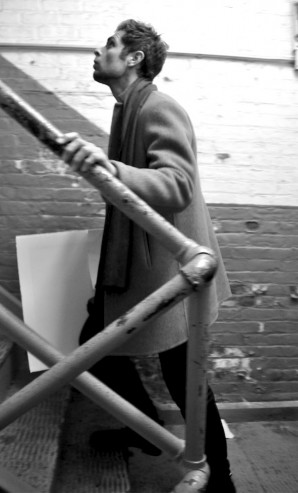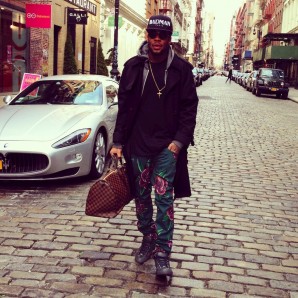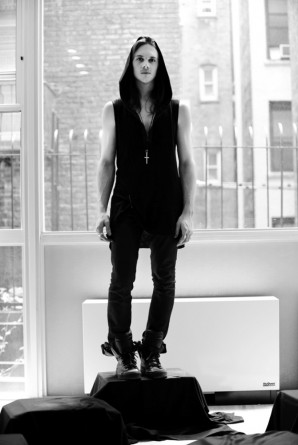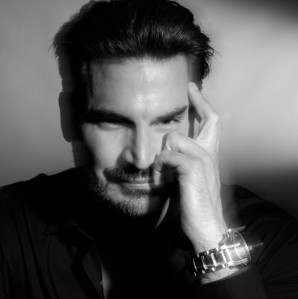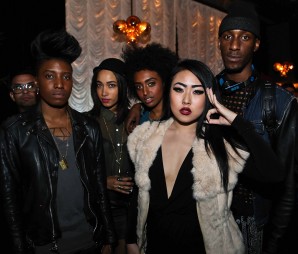TWELV takes a step back and visits the masterminds behind the camera.
MICHEL NAFZIGER INTERVIEW
With a wealth of experience shooting some for some of fashion's most renowned clients (Yves Saint Laurent, Guy Laroche), Michel Nafziger's rise to the top can be traced back to his early days of hard work and perseverance. The French photographer cited the late Guy Bourdin and George Tourdjman as mentors in his field– relationships which came to fruition after a chance encounter in his early days assisting at a studio in Paris. As Nazfiger will attest, those were perhaps the glory days of fashion photography, during which some of the most iconic images of the late '80s and ‘90s were produced. The freedom he was entrusted with by the art directors of the time is something he values and cherishes the most. Being in the same circles as the likes of Helmut Newton is no doubt something any aspiring photographer could only have dreamt, and yet Nafziger has fond memories of the demanding, formative years of his career. Now based in New York, he holds an annual photography workshop at the International Center of Photography, where he hopes to instill his knowledge and experience in the next generation of young creatives. TWELV caught up with Nafziger to discuss his early years in Paris, his inspiration, and the current chapter of his life in New York City:
TWELV: Have you dabbled in other areas of photography, or did you begin your career in fashion?
Michel Nafziger: At first, I assisted in a commercial studio in Paris. Photographers there were shooting silver trash cans, wallpapers, food, and interiors. I had fun and learned a lot about lighting techniques, until one day, a model showed up… I asked the hair and makeup artists if they knew a fashion photographer, and that was it. I quit to join George Tourdjman who was one of the greatest fashion photographer then in Paris. He himself had trained with Alexey Brodovitch who for some 25 years has lead design at Harper’s Bazaar. George quoted Brodovitch but also injected his own experience, which pushed me creatively. Until his death a year ago we have been very close, and he has been always supportive. To have a mentor– and a generous one that becomes a friend– is the greatest gift for any young photographer.
What has been your most memorable shoot to date?
MN: Probably my ad campaigns for Marithe and Francois Girbaud with Francoise HaVan and numerous editorials for a teen magazine in France called 20 Ans with Emmanuelle Alt. This was the time where art directors trusted you and you could almost do anything you wanted. That freedom was demanding but thrilling.
Which photographers have inspired your work?
MN: Of course, the predictable– like Henry Cartier-Bresson, Irving Penn, Steven Meisel, Helmut Newton, Guy Bourdin– with whom I worked when assisting for French Vogue. Helmut and Guy were most demanding to anyone around them until they got what they wanted or more. Being around creative people– not only photographers, but stylists, art directors, models, hair and makeup– makes a huge difference. All this is about team work.
What about other inspiration from art, film, everyday life?
MN: I travel a lot, but being in New York, often I attend gallery openings, and I spend a lot of time in museums. I also love to hang around and look at women in their daily life, how they move, what stops them. I especially like when they are in groups laughing or having a good time. It’s most appealing and electrifying. New York has a unique light. Nowhere in the world does a city have such light, bouncing in every direction, going from building to building and falling just perfectly. Reading also contributes in many ways to provoke and inspire me.
You’ve worked out of New York, San Francisco, and Paris. How do the cultural differences from these cities materialize in the photos?
MN: I also shot in London, Milan, Saint Bart, Tahiti, in Africa, etc. Indeed, in each of these cities and locations, women inspire me. And in each city, women exist differently– some are more classy, others are colorful, for others elegance is perceived through shape. However, if from time to time, when one gets excited to be here and there, around the world, Paris remains the place of elegance and creation. Everything there surprises, fascinates, because it’s not only about fashion, class and elegance, but it’s about what comes with it, like architecture, food, and history. This what makes Paris what it is. The whole world comes to Paris and contributes with their talents in this most exceptional feast for all the senses.
You hold an annual photography workshop at the International Center of Photography. What do you enjoy about teaching?
MN: Teaching is demanding and rewarding. I take it very seriously for several reasons. I feel it’s my duty to somehow transmit what I learned from others like George Tourdjman but also from Newton and Bourdin, plus of course, what my experience has brought me. It’s most appealing to see a group of young photographers, who often remind me of myself when I started to grow and become successful. Students also inspire me because they push me while forcing me to help them in their new quest.
What advice would you give to someone who's looking to start a career in fashion photography today?
MN: Well, I usually say this to my students first– Be disciplined, then dare, and only then, one will reach new territories. Try, take risks, but never ever give up. Is it easy? Honestly, no, it’s not. But if you understand that and you accept to pay the price, then you will find all the combinations to open all the doors.
In the 90’s, you shot campaigns for the likes of Marithe and Francois Girbaud, Yves Saint Laurent, and Guy Laroche. How do you feel fashion advertising has changed since then?
MN: Digital has brought terrific changes, making possible what was impossible or at best very costly. Also, one can shoot at all times, in all conditions, making all kinds of effects. However, now one of the most important parts has became the post production in which photographers are directly involved which before was not the case. Digital or not, the strongest campaigns or editorials usually come out from a small fashion team that thinks all the way through, not from a large production company or marketing people.
Could you introduce your West 10th St photo series? What was the mood you aimed to capture?
MN: The location was exceptional, beautiful with a gorgeous light coming from the north like the good artist studio that it was. I lived there for 7 years, shooting all kinds of models that were willing to be photographed. They play the game and we had a lot of fun because there was no rules, only fun. It was like living a dream. The location had a lot to do with it. It’s hard to describe, really.
Is there significance behind the elements of art direction chosen for some of these photos– the ‘scribbles' and ‘X’ marks?
MN: The images are all shot on film using all kind of cameras, from 8 by 10 to snap shot cameras. The red crosses are selects, just like the star rating today. No particular art direction. Looking back at the archives, I saw different images that were not selected at first on the contact sheets. Film photography is another world. None of the photographs are altered or retouched. Some pictures were shot with Polaroid film, one at a time, and some of them decayed and became something else.
Do you have any exciting projects you’re working on currently or planning for the future?
MN: Of course I have few projects lined up, but I don’t like to talk about the prey I am going to catch, only after it happens. I have been more and more interested in moving images and sounds.
Do you find it difficult to remain innovative and creative in your work?
MN: Any creative work is demanding. At times and for some reason, all the magic works for you, but at others times you just have to work harder and challenge yourself in many different ways until it happens. In photography, one always has to work with time. You can’t fight time. Time and light are the essences of photography. I try to be creative at every moment of my life, never using the same path, never using the same way of doing things, always challenging myself to look, to feel, to discover, and to use the concept of Ikebana which is to present life in the greatest simplicity.
INTERVIEW BY MARIO ABAD
EDITOR: HOLLIS DE LANEY
PHOTO CREDIT: MICHEL NAFZIGER
related posts
IKEMEN #24: LUKE ABBY
IKEMEN (ē´k´mɛn): Japanese Slang
"REALLY, REALLY, RIDICULOUSLY GOOD LOOKING PEOPLE"
ERIN FETHERSTON EXCLUSIVE INTERVIEW
NAME: Erin Fetherston
ORIGIN: California
OCCUPATION: Fashion Designer
CRYSTAL KAY EXCLUSIVE INTERVIEW
NAME: Crystal Kay
ORIGIN: Yokohama, Japan
OCCUPATION: Performer and musician
IKEMEN #23: ANSONI
IKEMEN (ē´k´mɛn): Japanese Slang
"REALLY, REALLY, RIDICULOUSLY GOOD LOOKING PEOPLE"
IKEMEN #22: ADAM SPOONT
IKEMEN (ē´k´mɛn): Japanese Slang
"REALLY, REALLY, RIDICULOUSLY GOOD LOOKING PEOPLE"
BABËL New York Celebrates 1 Year Anniversary With Two Day Event of Excess and Splendor
BABEL NEW YORK acclaimed the NYC party scene in celebration of their First Year Anniversary. As temperatures begin to heat up in NYC, there is no better locale than the much desired rooftop.
BEHIND THE SCENES #2: LUIGI MURENU
TWELV's Behind the Scenes takes a step back and visits the masterminds behind the camera.
IKEMEN #21: MICHELLE VON MANDEL
IKEMEN (ē´k´mɛn): Japanese Slang
"REALLY, REALLY, RIDICULOUSLY GOOD LOOKING PEOPLE"
IKEMEN #20: GEORGE INAKI
IKEMEN (ē´k´mɛn): Japanese Slang
"REALLY, REALLY, RIDICULOUSLY GOOD LOOKING PEOPLE"
DEBORAH ANN WOLL: ALL THE WORLD'S A STAGE
Deborah Ann Woll’s voice glows when she speaks, as warm and full as her golden red hair.
NEVE CAMPBELL: LOSE YOURSELF TO DANCE
Carrying over two decades of the industry on her back, there aren’t many women with the grace and stoicism of Neve Campbell.
GARETH PUGH: ORGANIZED CHAOS
Gareth Pugh is a study in contrasts; balancing the demands of what is created and what is worn; what is in a designer’s control and what is in the hands of the wearer; what must be planned and...
LAKE BELL: THE GREAT LAKE
Lake Bell has made a name for herself as a charming, beautiful, and witty New Yorker capable of indie and blockbuster success (“It’s Complicated”, “No Strings Attached”, “Children’s Hospital...
FRIDAY'S FW PARTY
With Fashion Week’s second day over, Friday night was primetime for some of the most prominent designer to celebrate their successes over a glass of champagne.
IKEMEN #19: SAMAR SAJJAD
IKEMEN (ē´k´mɛn): Japanese Slang
"REALLY, REALLY, RIDICULOUSLY GOOD LOOKING PEOPLE"
Happy Birthday, Kate the Great!
Happy birthday to everyone’s favorite super model Kate Moss. The Brit enters her 40th year with grace, and she looks better than ever.
Lady Gaga's ArtPop Ball
Lady Gaga is back, and this time, it’s not just to perform.
IKEMEN #18: KEIICHIRO NAKAJIMA
IKEMEN (ē´k´mɛn): Japanese Slang
"REALLY, REALLY, RIDICULOUSLY GOOD LOOKING PEOPLE"
IKEMEN #16: KAROLYN PHO
IKEMEN (ē´k´mɛn): Japanese Slang
"REALLY, REALLY, RIDICULOUSLY GOOD LOOKING PEOPLE"
Futura Bold
Futura came up in the grimy, visceral environment of New York City’s early 1970’s street culture of tagging, bombing and writing graffiti – making their art not in the city, but on top of it.
FROM AUSTRALIA WITH LOVE: WHAT I'VE LEARNED SO FAR
Buyer’s Regret: It’s just like buyer’s remorse only in reverse. And it is a fashion crime that I have and will probably continue to commit time and time again.
IKEMEN #15: EDOARDO IANNUZZI
IKEMEN (ē´k´mɛn): Japanese Slang
"REALLY, REALLY, RIDICULOUSLY GOOD LOOKING PEOPLE"
FROM AUSTRALIA WITH LOVE: Designer Profile of Gabriella Ferrante
I find that Australia’s fashion industry can sometime be accused of playing catch-up with other, bigger and more cosmopolitan locations (i.e. Paris, London etc…) This needn’t be the case.
IKEMEN #14: Joao Veiga de Aguiar
IKEMEN (ē´k´mɛn): Japanese Slang
"REALLY, REALLY, RIDICULOUSLY GOOD LOOKING PEOPLE"
FROM AUSTRALIA WITH LOVE: PRETTY BOYS DON'T BUY THEIR OWN DRINKS
Its no secret if you know me – I like to drink.
IKEMEN #13: NATALIE O'BRIEN
IKEMEN (ē´k´mɛn): Japanese Slang
"REALLY, REALLY, RIDICULOUSLY GOOD LOOKING PEOPLE"
IKEMEN #12: KRISTIN PRIM
IKEMEN (ē´k´mɛn): Japanese Slang
"REALLY, REALLY, RIDICULOUSLY GOOD LOOKING PEOPLE"
ARTIST, MODEL, AND LIVING PIECE OF ART: ZOMBIE BOY
From Zombie Boy to living icon, Rick Genest isn’t just Nicola Formichetti’s muse anymore.
IKEMEN #11: JAY PAAVONPERA
IKEMEN (ē´k´mɛn): Japanese Slang
"REALLY, REALLY, RIDICULOUSLY GOOD LOOKING PEOPLE"
DON'T CALL DELANO BROWN A DESIGNER
TWELV met up with the always-unpredictable artist Delano Brown for lunch in Bryant Park.
IKEMEN #10: LOGAN NEITZEL
IKEMEN (ē´k´mɛn): Japanese Slang
"REALLY, REALLY, RIDICULOUSLY GOOD LOOKING PEOPLE"
Rocco Leo Gaglioti
Who are you?
Rocco Leo Gaglioti Creator/Host of Fashion News Live and Owner/CEO of RLG Productions, Corp.
NICOLA FORMICHETTI TUMBLR MEETUP HIGHLIGHTS
“My job feels more like a hobby than a job, really; it’s always fun,” says Nicola Formichetti for TWELV’s second issue.

